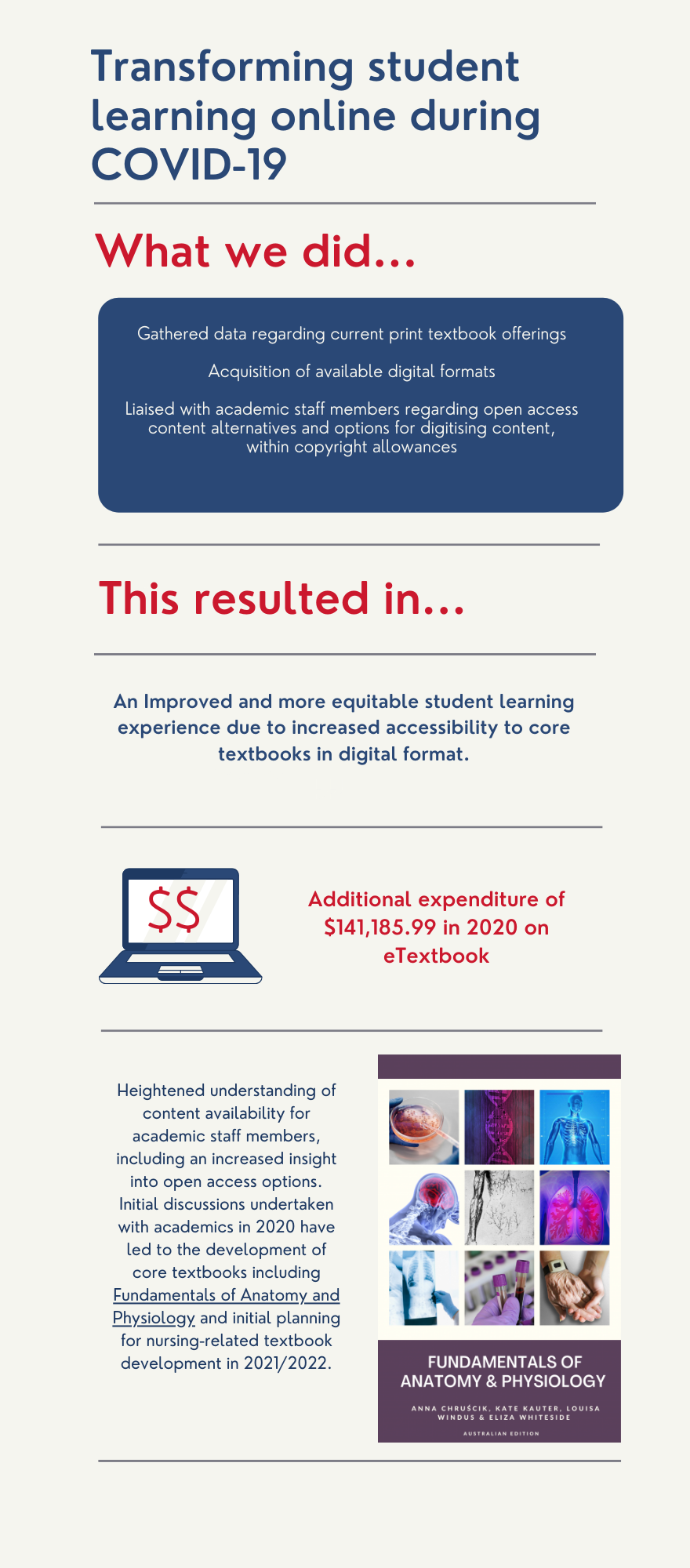Ways in which USQ Library has contributed to ending poverty

Reading and writing are critical skills which empower people to escape from poverty and disadvantage.
As a regional university, USQ is a leader in widening higher education attainment with one of the most diverse student cohorts in the higher education sector. One half of the University’s student body is from non-metropolitan areas, and one third come from low socioeconomic backgrounds. A high proportion of our students identify as Aboriginal and Torres Strait Islander and we have the highest proportion of first in family students in Queensland.
University libraries create programs and deliver services to increase the academic, information and digital literacies of a highly diverse student group. USQ Library supports our students to develop their academic writing, reading and communication skills through the provision of our Study Support services and resources.
Transforming student learning online during COVID
Tahnee Pearse, Associate Director, Content
USQ’s physical library collections were closed on 25 March 2020 to limit the spread of COVID-19. The Library clearly communicated to the USQ community the move to operating exclusively online while campus libraries were temporarily closed. An immediate and pressing challenge was to ensure that accessibility to textbooks was maintained over this time. There was a need to communicate with stakeholders, advocate for access and make informed decisions based on analytics and knowledge of licensing and copyright allowances.
At this time and during the weeks after the closure, a range of activities were undertaken. These actions were underpinned by effective communication and liaison across Library teams and with academic staff members. This included early engagement by the Director (Library Services) with Executive Deans and Heads of School, and Liaison Librarians communicating with academic staff about alternative access options for print textbooks. The steps and results are highlighted in the infographic below.


